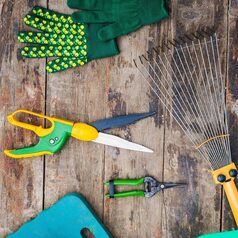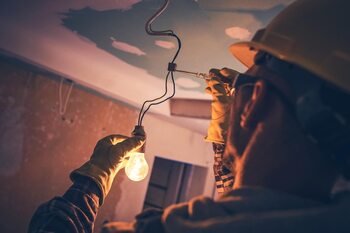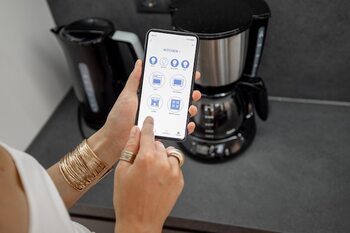Preventive maintenance for the well-being of your indoor spaces

Preventive maintenance is the key to ensuring the well-being of your indoor spaces. It’s not just about keeping your home in optimal condition, but about creating a healthy and welcoming environment for you and your family. With small efforts and simple habits, you can extend the lifespan of your installations, improve air quality, and avoid costly repairs in the future. Discover how to implement effective basic maintenance that will transform your home into an impeccable and harmonious refuge.
The importance of preventive maintenance: why is it essential?
Preventive maintenance is essential to preserve the functionality of the elements that make up our home. By conducting regular inspections and addressing key areas such as electrical systems, plumbing, and heating, not only is premature wear avoided, but minor issues are also identified before they become costly repairs. This proactive approach allows for maintaining the home in optimal conditions, ensuring a safe and comfortable environment for the whole family. Furthermore, by properly caring for the installations, their lifespan is extended, which means lower expenses in the long run and greater peace of mind.
Another essential aspect of preventive maintenance is improving indoor air quality. Frequently, our homes accumulate dust, allergens, and pollutants that can affect our health. Performing tasks such as cleaning air conditioning filters, properly ventilating spaces, and dehumidifying areas prone to moisture are simple yet effective actions to foster a healthy environment. By establishing a preventive maintenance routine focused on cleaning and caring for the indoor environment, not only is physical well-being promoted, but a welcoming space is also created that invites full enjoyment of the home.
2. Basic tools that every home should have
To carry out effective preventive maintenance at home, it is essential to have a basic set of tools that facilitate everyday tasks. These tools will not only allow you to make minor repairs but also help you keep your spaces clean and organized. A good set of screwdrivers, a hammer, pliers, and an adjustable wrench are fundamental items that every home should have. Additionally, incorporating tools like a tape measure and a level will ensure that any improvement or repair project is done with precision.
It is also important to have specific cleaning and maintenance products for different surfaces within the home. From multipurpose cleaners to suitable disinfectants for the kitchen and bathroom, these products will help maintain the hygiene and condition of your facilities. Investing in an efficient vacuum cleaner or a suitable mop can make a difference in indoor air quality and the overall appearance of your space. Having these basic tools on hand will allow you to proactively address small inconveniences before they turn into bigger problems, thus ensuring the continuous well-being of your home.
3. How to establish an effective maintenance schedule
Establishing an effective maintenance schedule is essential to ensure that every corner of your home receives the attention it needs. Start by identifying the most important tasks, such as checking heating and cooling systems, cleaning filters and drains, as well as inspecting pipes and electrical connections. Break down these tasks into an appropriate frequency; some may require monthly attention, while others can be reviewed quarterly or annually. Use simple tools like calendar apps or physical lists to schedule reminders to ensure that no important task is overlooked.
Another fundamental aspect when establishing a maintenance schedule is the assignment of responsibilities within the home. Involving all family members not only makes the process easier but also fosters a sense of belonging and care for the shared space. Consider creating a rotating chart where each person has specific tasks assigned, adapting the list according to individual capabilities and preferences. This way, you will turn maintenance into a collaborative activity that can even become an opportunity to enjoy time together as a family, transforming duties into pleasant moments within the home.
4. Periodic reviews: which areas should you not overlook?
Periodic inspections are essential to ensure that all areas of your home function properly and remain in good condition. Start by checking the heating and air conditioning system, making sure to clean or replace the filters regularly. This not only improves the efficiency of the equipment but also contributes to indoor air quality, reducing allergens and pollutants that can affect your family's health. Additionally, it is important to inspect the pipes for leaks or signs of corrosion, as these issues can lead to significant damage if not addressed in a timely manner.
Don't forget to pay attention to the most commonly used appliances. Conduct an annual check of the refrigerator, oven, and washing machine to ensure they are functioning properly. Cleaning the refrigerator coils and unclogging the dryer filter can prevent fires and improve energy efficiency. Finally, take time to inspect the electrical system; check wires, outlets, and fuses to avoid potential hazards. These small actions not only provide peace of mind but also ensure a safe and welcoming home for all its inhabitants.
5. Practical tips for appliance care
To ensure the optimal functioning of your appliances, it is essential to carry out regular maintenance to prevent possible failures and extend their lifespan. A practical tip is to clean the air filters in heating and cooling units, as well as in kitchen exhaust fans. This not only improves the energy efficiency of the appliance but also helps maintain good air quality in your home. Additionally, make sure to check the hoses and connections of appliances that use water, such as washing machines and dishwashers, to prevent leaks that could cause damage to your interior spaces. Another important aspect is to regularly disinfect appliances that come into contact with food, such as microwaves and refrigerators. Use appropriate products to avoid the buildup of bacteria and unpleasant odors. It is also advisable to unplug appliances when they are not in use for long periods; this not only saves energy but also reduces unnecessary wear. Finally, always follow the manufacturer's instructions for the specific use and care of each appliance; this ensures optimal performance and prevents future problems that may affect the harmony of your home.
6. Simple techniques to maintain indoor air cleanliness
Maintaining clean indoor air is essential for creating a healthy home environment. One of the simplest and most effective techniques is regular ventilation. Opening the windows for at least 15 minutes a day allows fresh air to circulate, helping to eliminate pollutants and accumulated moisture. Additionally, it is advisable to use exhaust fans in areas like the kitchen and bathroom, where vapors and unpleasant odors are generated. This practice not only improves air quality but also prevents problems like mold and condensation, thereby contributing to the overall well-being of your home. Another effective technique is to introduce air-purifying plants into your indoor spaces. Species like pothos, sansevieria, or spathiphyllum are known for their filtering properties, as they absorb harmful substances and release oxygen. By incorporating these plants into your decor, you not only beautify your spaces but also create a healthier environment. Complement this with regular cleaning of air filters and heating or cooling systems; ensuring these elements are clean guarantees that they circulate air free of impurities, further improving the quality of the indoor atmosphere and promoting a revitalizing breath for the entire family.
7. Economic benefits of preventive maintenance in the home
Preventive maintenance at home not only contributes to the aesthetics and functionality of spaces but also offers significant economic benefits. By conducting regular inspections and minor repairs, you can identify problems before they become costly emergencies. For example, a small leak in a pipe may seem insignificant, but if not addressed in time, it can lead to significant structural damage and a larger repair bill. Thus, investing time and resources in preventive maintenance translates to considerable savings in the long run. Moreover, the good condition of your installations promotes the energy efficiency of the home. Well-maintained equipment, such as heating or cooling systems, operates more efficiently and consumes less energy. This not only reduces your monthly bills but also minimizes the environmental impact. Ultimately, by adopting a proactive approach to preventive maintenance, you not only protect your initial investment in the property but also create a more sustainable and economical environment for your family.



